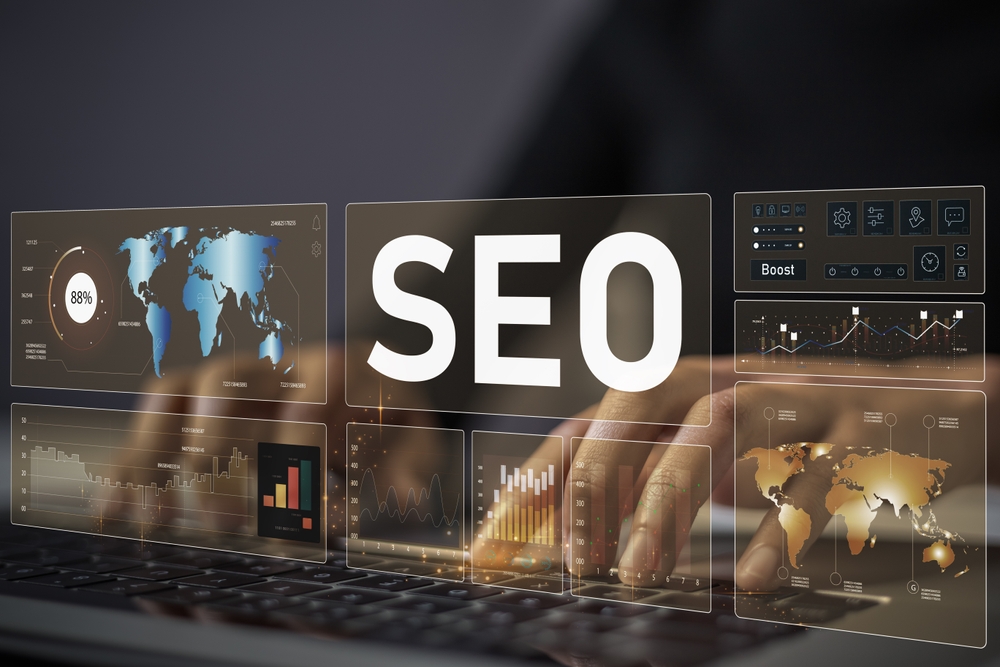The rapid evolution of AI-powered SEO tools is reshaping the way businesses and marketing professionals approach digital strategies. As we head into 2025, the emphasis on automation, precision, and predictive analysis continues to grow. Companies that prioritize adaptive SEO solutions are positioning themselves for higher visibility and stronger competitive advantages in search engine rankings.
Advanced Natural Language Processing for Contextual SEO
Search engines like Google have significantly improved their natural language understanding, thanks to advancements in AI models such as BERT and MUM. In response, SEO tools are incorporating more sophisticated NLP algorithms to analyze not just keywords, but user intent and content relevance at a granular level. This trend enables marketers to optimize content that truly answers user queries.
- Tools offering content gap analysis based on NLP insights are becoming vital for enterprises striving to dominate niche markets.
- Predictive keyword suggestion, driven by user behavior analysis, helps decision-makers craft more compelling content strategies.
For businesses operating in diverse markets, leveraging AI-driven multilingual content optimization ensures global reach while maintaining local authenticity.
Internal link: Understanding how AI enhances content creation is critical. You can explore more in our post on AI and content marketing.
Automated Technical SEO Audits
Conducting technical SEO audits can be complex, but AI tools are automating this process with remarkable accuracy. Emerging platforms now offer real-time monitoring of key metrics such as crawlability, mobile usability, and structured data errors.
Key features to watch in 2025:
- Dynamic error resolution: AI tools not only detect issues but also suggest fixes or automatically resolve them in some cases.
- Enhanced support for voice search SEO, ensuring content is optimized for devices like smart speakers.
By implementing serverless architecture and automated auditing solutions, companies can ensure optimal website performance without heavy manual intervention.
Predictive Analytics for Keyword and Traffic Trends
AI-driven predictive analytics is revolutionizing keyword research and traffic forecasting. Instead of relying on historical data alone, these tools analyze current trends and user behavior patterns to forecast the most promising keywords and traffic opportunities.
Benefits include:
- Smarter content scheduling: Knowing when a topic is likely to trend helps marketers publish at the most effective times.
- Improved ROI tracking by correlating SEO performance with business outcomes.
Understanding predictive SEO’s role in B2B lead generation is key for businesses aiming to enhance their online presence.
AI-Enhanced Link Building Strategies
Building high-quality backlinks has always been a pillar of successful SEO strategies. AI tools are becoming more adept at identifying potential link-building opportunities by scanning relevant domains, content topics, and backlink profiles.
Emerging capabilities in this space include:
- Automated outreach: Personalized emails generated by AI, improving response rates.
- Reputation management insights: Ensuring backlinks are from reputable sources to prevent penalties.
AI-Driven User Experience Optimization
User experience (UX) plays a crucial role in SEO rankings, as search engines increasingly prioritize sites that deliver high engagement. AI-powered platforms are analyzing UX metrics to offer actionable insights on improving navigation, speed, and mobile responsiveness.
Key trends:
- Personalized landing page generation: AI tools that adapt page layouts based on user personas.
- Heatmap analysis: Understanding user interaction patterns through visual data, enabling better design choices.
Businesses adopting dynamic website personalization are likely to see significant improvements in conversion rates and engagement.
Voice Search Optimization
As voice-activated searches become more mainstream, SEO tools are evolving to optimize for conversational queries. AI platforms are now offering features like semantic optimization for long-tail keywords and structured data recommendations tailored to voice search.
Adapting content for multimodal search—a combination of text, image, and voice input—is a growing necessity in 2025. Companies need to ensure they stay ahead of this trend to maintain search visibility.
Sustainability and Ethical AI in SEO
With AI’s increasing role in SEO, concerns around ethical AI usage and sustainable digital practices are growing. Companies must ensure transparency in AI-driven processes, such as how keyword priorities are determined and how user data is used.
Some best practices include:
- Partnering with providers who prioritize data privacy and transparency.
- Investing in green data centers to reduce the environmental impact of SEO operations.
AI-Driven Content Personalization for SEO
In 2025, content personalization will be a key differentiator for companies seeking to enhance user engagement and conversion rates. AI tools have advanced beyond basic audience segmentation, now enabling dynamic content adaptation based on real-time user behavior and preferences.
Personalized content has several SEO benefits:
- Higher dwell time: Tailored content improves user satisfaction, which signals relevance to search engines.
- Lower bounce rates: Visitors are more likely to stay on pages that directly address their needs.
- Improved click-through rates (CTR): Personalized meta titles and descriptions generated by AI can lead to higher CTR from search engine results pages (SERPs).
Integrating AI-driven content strategies into CRM platforms ensures that marketing efforts are consistent across channels, resulting in seamless brand experiences.
Multi-Channel SEO Strategy Integration
The lines between SEO and other digital marketing strategies are blurring. An effective SEO approach in 2025 will no longer operate in isolation but as part of a multi-channel digital strategy. AI tools are leading the charge by integrating SEO insights across email, social media, and paid search campaigns.
Emerging trends in multi-channel SEO include:
- Cross-platform keyword optimization: AI tools now analyze keyword performance across different platforms and suggest variations optimized for search engines, social media platforms, and online marketplaces.
- Holistic performance tracking: Unified dashboards that consolidate SEO, PPC, and social metrics allow marketers to make data-driven decisions faster.
- Enhanced remarketing campaigns: AI-driven retargeting leverages SEO data to serve personalized ads, increasing conversion rates.
Leveraging AI tools that bridge the gap between organic and paid search ensures a more cohesive brand presence and maximizes return on marketing investment.
The Role of AI in Local SEO Expansion
With more consumers turning to local searches for products and services, local SEO has become essential for businesses of all sizes. AI-powered SEO tools are enhancing local search strategies by automating processes such as citation building, local keyword optimization, and review management.
Key innovations in AI-driven local SEO for 2025 include:
- Geo-targeted content generation: AI tools can create location-specific content at scale, ensuring that businesses rank well in different local markets.
- Sentiment analysis of reviews: Tools that assess customer sentiment in reviews help businesses identify strengths and weaknesses to improve their local reputation.
- Automated Google My Business (GMB) updates: Keeping GMB profiles up to date with relevant information, photos, and offers can significantly improve local search rankings.
As competition for local SERP features, such as map packs and featured snippets, intensifies, companies must leverage AI to maintain a competitive edge in local markets.
Visual SEO and Image Recognition
The demand for visual content is surging, and search engines are becoming more adept at interpreting images through AI-driven image recognition technologies. As a result, optimizing visual content has become a crucial component of SEO strategies.
AI tools are now capable of:
- Auto-generating alt text: Advanced AI models analyze images and generate descriptive alt text that improves accessibility and SEO.
- Image search optimization: Platforms that recommend best practices for image size, format, and metadata enhance a website’s visibility in image search results.
- Video SEO insights: AI tools offering video keyword suggestions and transcript generation ensure that video content ranks highly on both search engines and video platforms.
With the rise of multimodal search, where users can search using a combination of images, text, and voice, businesses need to stay ahead by ensuring that all types of content are properly optimized.
Semantic Search and Entity-Based Optimization
In recent years, search engines have shifted toward semantic search, focusing on understanding the meaning behind queries rather than just matching keywords. AI-powered SEO tools are helping businesses optimize their content for this new search paradigm by focusing on entity-based SEO.
Key strategies include:
- Topic clustering: AI tools identify related topics and suggest content clusters that improve a website’s topical authority.
- Entity recognition: By analyzing structured data and content, AI tools can ensure that entities (e.g., people, places, products) are properly marked up, improving relevance for semantic search.
- Question-answer optimization: With the increased prominence of featured snippets and “People Also Ask” sections, tools that generate FAQ-style content are crucial for capturing prime SERP real estate.
Entity-based SEO also plays a role in voice search optimization, ensuring that content aligns with how users phrase spoken queries.
Advanced Competitor Analysis with AI
Understanding competitors’ strategies has always been a critical part of SEO, but AI tools are taking competitive analysis to a new level. By using machine learning algorithms, businesses can now gain deeper insights into what drives their competitors’ success.
Key AI-driven competitor analysis features include:
- SERP feature tracking: Identifying which SERP features (e.g., featured snippets, knowledge panels) competitors are dominating and suggesting opportunities to capture them.
- Backlink gap analysis: AI tools highlight backlink opportunities by comparing link profiles with competitors.
- Content performance benchmarking: Analyzing competitors’ top-performing content helps businesses identify gaps in their own content strategy.
AI-driven competitor analysis enables businesses to make more informed decisions and outperform rivals in organic search.
AI-Powered Schema Markup Tools
Schema markup plays a vital role in how search engines interpret and display content. In 2025, AI tools are simplifying schema markup implementation by automatically generating and applying structured data to web pages.
Benefits of using AI-powered schema tools include:
- Enhanced SERP visibility: Properly implemented schema increases the chances of earning rich results such as review stars, event snippets, and product details.
- Reduced manual effort: AI tools eliminate the need for manual coding by generating markup that aligns with content and SEO goals.
- Better voice search compatibility: Schema markup improves a site’s chances of being selected as a voice search answer.
For companies aiming to enhance their presence in voice and visual search, implementing AI-driven schema solutions is a critical step.
AI-Assisted Content Refreshes
Keeping content updated is crucial for maintaining search engine rankings, and AI tools are becoming invaluable in content refresh strategies. These platforms can identify which pieces of content are underperforming and suggest updates to improve relevance and ranking potential.
Key content refresh capabilities include:
- Trend analysis: AI tools analyze current search trends and recommend changes to outdated content.
- Competitor benchmarking: Tools that compare existing content against top-ranking competitors ensure that refreshed content meets or exceeds industry standards.
- Automated content enhancement: Some platforms can rewrite sections, add new data, or suggest additional multimedia elements to improve engagement.
By leveraging AI to automate content updates, businesses can maintain evergreen content and maximize their SEO efforts without overwhelming their marketing teams.
The Future of Zero-Click Searches
The rise of zero-click searches, where users find answers directly on the SERP without clicking through to a website, poses a challenge for traditional SEO metrics like click-through rate. AI tools are helping businesses adapt by focusing on strategies that still drive value despite fewer clicks.
Key zero-click SEO strategies include:
- Optimizing for featured snippets: AI tools can analyze snippet opportunities and suggest content improvements to capture these prime SERP positions.
- Focusing on brand visibility: Even if users don’t click, appearing prominently in search results reinforces brand awareness.
- Driving traffic through alternate channels: By integrating SEO insights with social media and email marketing campaigns, businesses can maintain engagement beyond organic clicks.
Understanding and adapting to search intent for zero-click queries ensures that businesses continue to benefit from high search visibility.
As we look toward 2025, AI-powered SEO tools will continue to evolve, offering smarter, faster, and more comprehensive solutions. Businesses investing in advanced tools—particularly those emphasizing automation, predictive capabilities, and ethical AI—will not only enhance their online presence but also gain a competitive edge.
Whether you’re a growing enterprise or a large organization, understanding and implementing these trends can drive significant SEO success. Staying informed about developments in technical SEO, predictive analytics, and UX optimization ensures that your digital strategy remains robust in an ever-changing landscape.
Ready to future-proof your SEO strategy? Keep exploring our insights on the latest technology trends shaping digital marketing.






